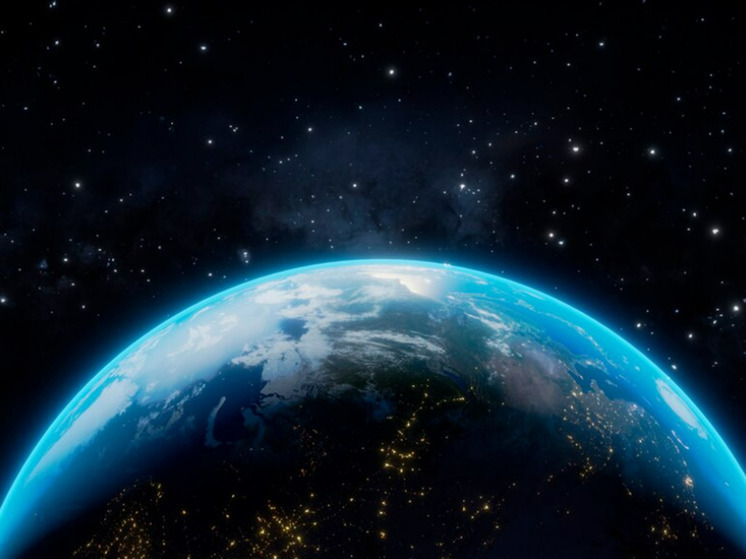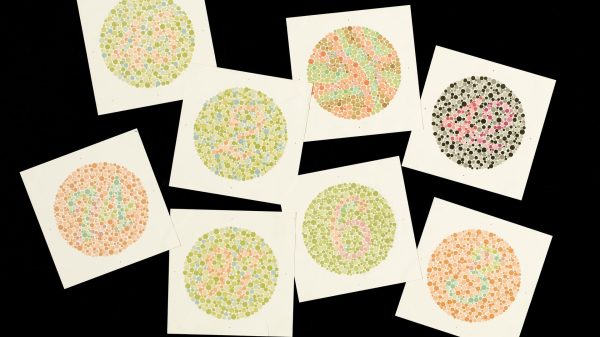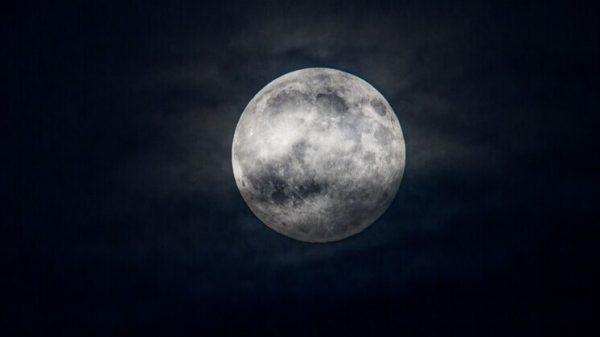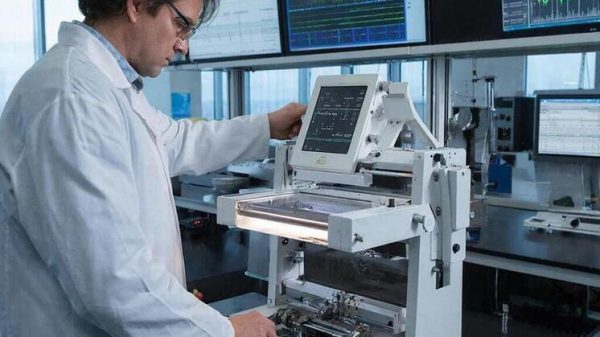“It is still unclear when, where and how”
Did life originate on Earth or on the stars? Scientists consider three main theories – and believe that they are close to a solution. Three competing theories about the origins of life's building blocks may fit together. Of all the questions that science seeks to answer, one of the most important may be how life began on our planet. Did the basic components of life originate on Earth or among the stars?

Although there are many scientific theories about the origin of life, they all share some basic assumptions that life has four main components, and they likely weren't around when Earth first formed from a 4.6 billion ball of hot dust, gas and magma years ago.
According to the Daily Mail, the three leading theories are: life arose from the basic gases and elements of Earth's early waters and seas, meteorites brought living beings to Earth, and meteorites brought only the basic chemical components of life, but not life itself.
Experts in the field of astrobiology and analytical chemistry told DailyMail.com that the most likely explanation is a combination of the first and third theories.
Scientists believe that the basic building blocks of life were brought from space by meteorites, and they gave rise to life in the primordial broth of early earth basins and shallow seas.
The three main theories about the origin of life differ on the main question: where exactly did these substances come from and how did they begin the process that ended with the Earth being completely covered with life – from the seabed to the mountain peaks?
It's no surprise that this question is also one of the most difficult to answer, notes the Daily Mail.
And, according to researchers who have dedicated their lives to studying the fundamentals chemistry of life, the answer likely involves a combination of these explanations.
The primordial soup theory, first proposed by several astronomers in the 1920s, proposes that the chemical building blocks of life formed in pools or oceans of the early Earth from primordial gases and metals.
Some vast sources of energy, like lightning strikes, caused the formation of amino acids – building blocks of proteins.
The theory of panspermia may seem far-fetched in comparison, writes the Daily Mail: alien microbes arrived from space and multiplied here on Earth. But scientists only came up with this idea because no other theory seemed to explain where life came from.
The third theory is called pseudopanspermia, and it falls somewhere between the other two. It is similar to panspermia, but suggests that only the basic building blocks of life fell to Earth in the form of a meteorite or comet, rather than actual living beings. These molecules found a home in the early seas, where they gave rise to proteins and eventually single-celled creatures.
So what's the answer?
When DailyMail.com asked several experts which of these theories was the strongest, they largely agreed that there wasn't enough evidence to confidently choose one theory over the other.
Graham Cooks, professor of analytical chemistry at Purdue University, told DailyMail.com: «All living systems involve molecules and chemical reactions. The molecules of life on Earth include peptides/proteins and nucleic acids (RNA and DNA). Regardless of whether these molecules were produced here or elsewhere, the reactions that lead to their formation – their underlying chemical composition – would be the same.”
In 2022, Cook and his colleagues presented evidence that the building blocks of life may have arisen from a combination of pseudopanspermia and the primordial soup, writes the Daily Mail.
Meteorites crashed into deposits of amino acids and other molecules, including water, in Earth's ancient oceans, where they spontaneously assembled into small proteins called peptides.
«Although I have no basis for any clear idea of where the chemistry occurred, I know this from laboratory reactions: in tiny drops of water, amino acids quickly assemble into peptides, without the need for any other reagents or catalysts,» – Professor Cooks notes.
“This makes it reasonable to assume that amino acids delivered to the ancient ocean by meteorites (a process that continues unabated today) must have been present in ancient sea spray and must have formed peptides,” " he said.
This is exactly how it could happen on Earth, he believes.
"But given the presence of seas of liquid water on planetary bodies such as Enceladus, a moon of Saturn, and presence of amino acids there, it is expected that there will be the same chemistry of peptide formation,” – Cooks continued.
Cooks' explanation combines the reliability of the laboratory results with uncertainty about whether things on Earth actually happened as they did in the laboratory, the Daily Mail emphasizes.
Yasuhiro Oba, an associate professor at the Institute of Low Temperature Science at Hokkaido University, came to different conclusions, but he shares a similar sense of uncertainty. Despite his team's work that supports the pseudopanspermia theory, he acknowledged several problems with the idea.
"The most important of these is that all life was never created from much simpler components such as amino acids and nucleic acid bases," Yasuhiro Ohba told DailyMail.com.
In other words, creating amino acids in a laboratory environment that mimics the early Earth – that's one thing. But to give rise to real living beings – this is completely different, explains the Daily Mail.
«Although some functional molecules such as DNA, RNA and peptides have been synthesized in prebiotic chemistry laboratories, the conditions of synthesis in the laboratory are always far from the actual conditions on the early Earth,» " Oba noted.
Even more frustrating is that scientists cannot know what the "real environment" on early Earth, the scientist said.
Instead, Oba's team created a cold, airless vacuum in the laboratory to simulate conditions in space. And in 2019, they discovered that basic organic molecules can form in space.
These molecules, called nucleosomes, combine with phosphates and sugars to form nucleotides, which build DNA – so they are far from real living beings. However, they are essential for life.
"Our results suggest that the processes we reproduced could lead to the formation of molecular precursors to life,", – Oba said then. «The results may improve our understanding of the early stages of chemical evolution in space.»
They also found that amino acids can be formed in space conditions.
But does his team's data indicate that pseudopanspermia is more likely than primordial broth?
"I can’t say what is better and what is not, – Yasuhiro Oba said. – If simple life is created in laboratories from simple molecules that were found in extraterrestrial materials, we can say that the so-called pseudopanspermia theory may play a role. Please note that I am not ruling out any possibilities for the origin of life on Earth. Life may have been formed not only by the pseudopanspermia theory, but also by the primordial soup theory.
Other scientists have long shared this uncertainty about the two theories, which led them to the emergence of a third.
"The panspermia hypothesis was proposed because any other theories could not explain the origin of life", – said Oba.
With panspermia everything is much simpler. It is assumed that life came to Earth from space. This theory even predates the “primordial soup,” writes the Daily Mail. Svante Arrhenius proposed it in 1903, but for a long time it was rejected as pseudoscience due to lack of evidence.
"In its modern formulation, this hypothesis involves three stages, – writes Yuko Kawaguchi, an astrobiologist at the Japan Planetary Research Center. – Escape from the planet, transit through interplanetary space and landing on the recipient planet.»
So far, «transit» – this is the only evidence collected by scientists. But they are still adding finds to the pile, the Daily Mail emphasizes.
Oba's team found evidence of nucleic acid bases in the meteorite, which some experts took as support for the panspermia theory. However, other studies provide more direct evidence. Kawaguchi and her team published a 2020 study in the journal Frontiers of Microbiology showing that bacteria exposed to space for three years can survive. Based on samples taken over a three-year period, the researchers predicted that the bacteria could survive the harsh conditions of space for two to eight years – perhaps long enough for a short trip to Earth.
In a follow-up study, Kawaguchi and her colleagues showed that the DNA mutations bacteria accumulated while in space were similar to those of the same bacteria on Earth.
p>
In other words, flying in the vacuum of space seemed to cause no more harm to microorganisms than staying on Earth.
"Even for scientists like us, it is still unclear when, where and how the first life began,” – said Oba.
But one thing is certain, he said: the components of life existed on Earth before life appeared: “The source of such components can be varied: from space and/or the primordial soup. Future extensive research into the origins of life on Earth should clarify such extreme questions.»






















































Свежие комментарии